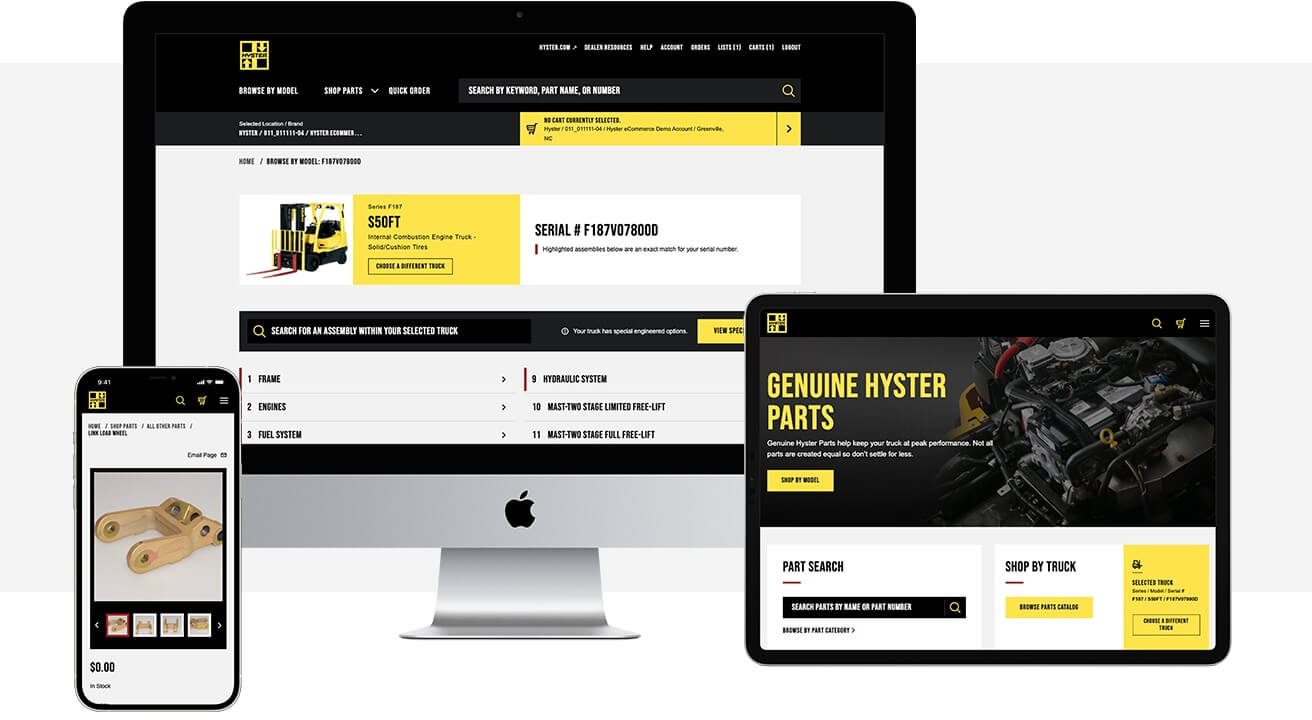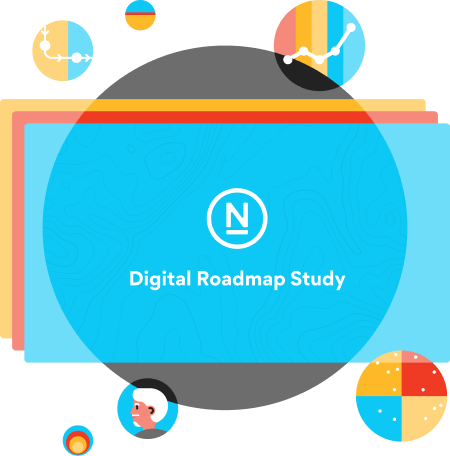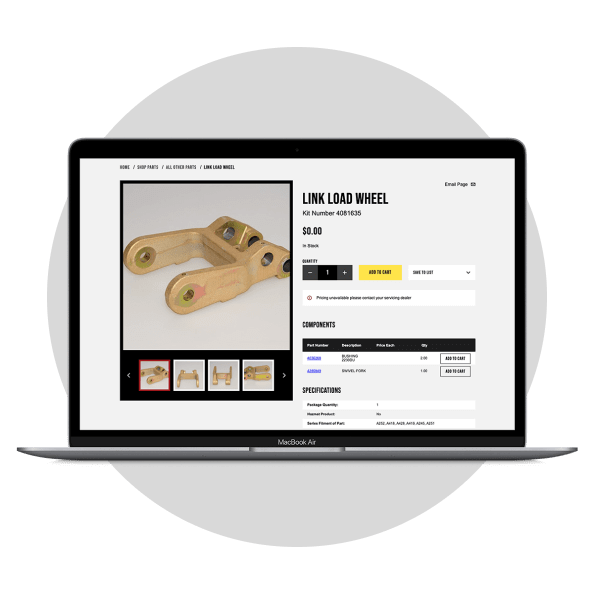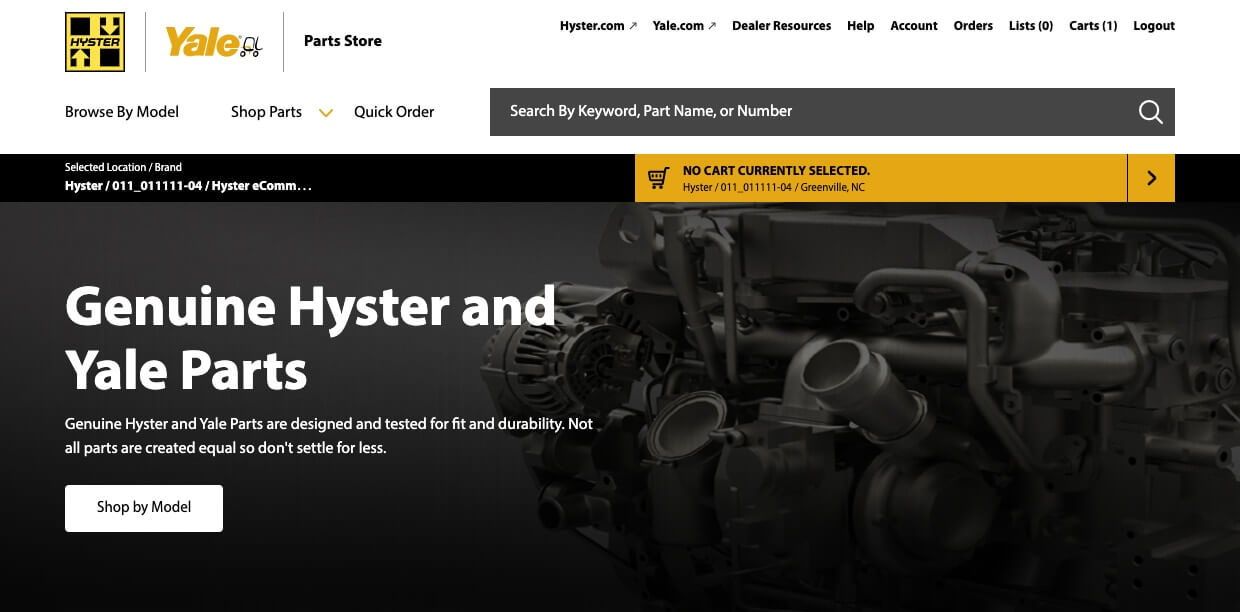Global manufacturer unlocks ecommerce potential through PIM
PIM and ecommerce go hand in hand. Learn in this case study how to ensure a successful ecommerce launch with product information management.

The challenge
Hyster-Yale Group is a global forklift manufacturer. They go to market through a dealer network, in partnership with a major accounts team—with approximately 350 dealer locations in North America.
From an after sales perspective, Hyster-Yale maintains parts distribution for up to 20 years after the last production date of a given lift truck. And they extend the support of highly serviceable parts for as long as it’s practical—in many cases, over 50 years.
Hyster-Yale Group has 21 manufacturing operations in 12 countries, and over 1 million total SKUs in North America alone with 300,000 active parts and 90,000 warehoused. They needed a digital ecosystem that could accommodate the growing needs of its customers and dealers.

Our approach
We began this engagement with a customer segmentation study to identify the opportunities with the highest ROI potential for Hyster-Yale. Through this process, we gained clarity on their business goals and their most pressing challenges.
We surveyed their customers, dealers, and internal stakeholders. The data indicated a significant financial gain if the company built a B2B ecommerce website.
But before we could begin that project, Hyster-Yale needed to get their product data in order. They had over 50 years of parts data living in multiple, disparate sources, managed by generations of different processes. This wasn’t only hindering their ecommerce growth; it was the lynchpin for dozens of digital transformation projects they had in the queue.

We consulted with Hyster-Yale as they enriched and standardized massive amounts of product data. We then implemented a custom inriver PIM solution to create the centralized, streamlined source of truth for product data that they so desperately needed.
From there, we worked with Hyster-Yale to identify the best ecommerce platform for their needs. After a thorough vetting process, we selected Znode based on its flexibility, its data model that allows for multi-store and multi-catalog, and its core B2B functionality.
Final experience
Hyster-Yale now has reliable product data in PIM, on their own ecommerce website, and across various downstream channels. PIM is now the center of the company’s digital ecosystem, allowing them to manage parts data like never before.
Their parts marketing staff can run reports by category and type, showing any data in the ecosystem that needs to be enriched. Salespeople can log on to see orders and intervene when necessary. Everyone is more confident in accuracy and spending less time repeating manual tasks, reducing opportunity for error.
With this project, Hyster-Yale not only solved the problems of today; they got more prepared to solve the problems of tomorrow. In the future, their clean data can be syndicated into whatever channels their technicians, owners, and operators are using—be that shopping for parts through ecommerce marketplaces or repairing machines using virtual reality.


Hyster-Yale now has the infrastructure in place to deploy multistore experiences with geo-specific product offerings between the Americas, EMEA, Brazil, and Asia Pacific. Administrators across each region are empowered to create unique experiences that account for product availability, import/export tariffs, shipping lead times, and more.
By the numbers
41%
of customers interested in purchasing parts online
600K
active SKUs
50+
years of highly-supported parts per truck
“This project changed my whole perception of how the digital ecosystem can be structured. I highly recommend starting any digital transformation engagement—PIM, ecommerce, or otherwise—with a primary research engagement. That way, you can ensure that you’re investing in initiatives that will actually improve your bottom line.”
Kellie Casey
Manager of Aftersales Communications and Ecommerce
Request a quote

